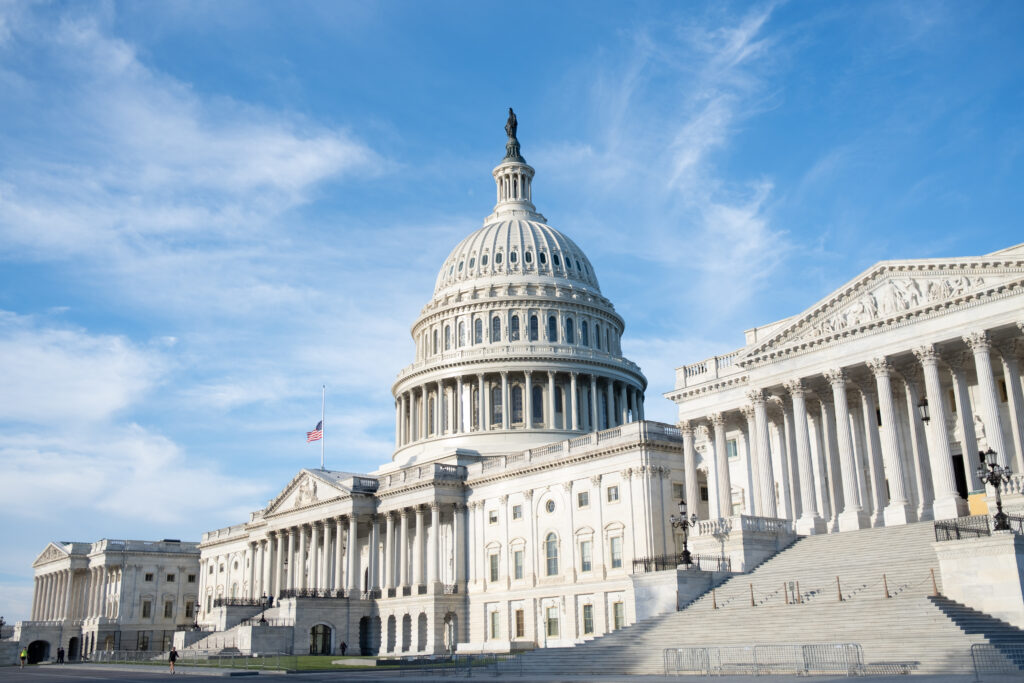
Summary
- Recently in state crypto policy, while many appreciate the economic and technological opportunities that digital assets can offer, the regulatory patchwork that has developed across the 50 states poses challenges for both consumers and innovators.
- Three approaches have emerged at the state level for regulating digital assets: Money Transmitter Licenses (MTLs), New York’s Virtual Currency Business Activity regulations, and Wyoming’s Special Purpose Depository Institutions Act.
- States are recognizing the opportunity that the digital asset economy presents for their residents. In 2023 alone, thirty-nine states, Puerto Rico and the District of Columbia introduced digital asset legislation. As states continue advancing their own frameworks, this space will continue to get even more complex.
- A state-based regulatory frameworks, especially when coordinated among and across each other, can serve as an efficient and effective regulatory model for the industry.
The crypto-verse turned its eyes on California this month, as Governor Newsom signed AB 39, a licensing and regulatory framework for digital assets. It’s the latest example of state governments filling the vacuum that’s been left by the lack of a comprehensive federal framework for this unique and nuanced technology and asset class.
While states have recognized the opportunity that the digital asset economy presents for their residents, the patchwork of varying laws, regulations, and bureaucracies that has developed across the fifty states poses challenges for consumers and innovators alike. Three approaches have emerged at the state level for governing crypto: (1) Money Transmitter Licenses (MTLs), (2) New York’s Virtual Currency Business Activity regulations, and (3) Wyoming’s Special Purpose Depository Institutions Act.
Most States Regulate Crypto Through Money Transmission Licenses
In 2013, the US Department of Treasury’s Financial Crimes Network (FinCEN) determined that digital asset exchanges and intermediaries met the definitions of “money transmitter” and “money service businesses” (MSBs) under applicable Bank Secrecy Act (BSA) regulations. Following FinCEN’s determination, many states began to require exchanges to secure a money transmission license (MTL). Traditionally, money transmission laws have governed activities such as the transfer of funds, currency, or other substitutes for money. Today, thirty-seven states have expanded their money transmission laws to regulate digital asset activity related to financial services. In these states, activity that would require licensing includes selling, issuing, or receiving crypto.
Bringing digital assets under the money transmission regulatory umbrella can be efficient for certain activities. Every state except Montana has some form of money transmission statute on the books. This provides an established pathway to compliance for specific digital asset activity. However, there is a lack of uniformity across states about which digital asset activities can trigger licensing requirements. For example, several of these states—including Tennessee, Virginia, and Wisconsin—only involve licensure when digital asset transactions include a fiat currency.
Applying standards written for an analog economy can also fail to capture the complexity that is present across the financial digital asset ecosystem. Issuing a token, for example, is very different from operating a self-hosted wallet or facilitating crypto-to-crypto transactions. Additionally, digital asset businesses regulated under money transmitter laws are often required to secure licenses in every state they operate or serve customers in. The cost and time commitment of securing multiple states’ licenses is particularly prohibitive for many smaller businesses.
New York’s Crypto-Specific Regulatory Framework has Tradeoffs
Recognizing the complexity of the digital asset industry, several states have established their own crypto-specific regulatory frameworks. New York was the first state to do so. In 2015, the state established its BitLicense regulations and expanded the NY banking law to allow limited purpose trust companies chartered in the state to conduct virtual currency business activity.
According to the New York Department of Financial Services (NYDFS), which oversees the regulatory regime, “Virtual Currency Business Activity” can include any of the following: receiving virtual currency for transmission or transmitting virtual currency; storing, holding, or maintaining custody or control of virtual currency on behalf of others; buying and selling virtual currency as a customer business; performing exchange services as a customer business; or controlling, administering, or issuing a virtual currency.
The approach from NYDFS is comprehensive, and has led other states to follow its lead. This includes Louisiana, which passed its Virtual Currency Business Act in August of 2020, and California, which passed the Digital Financial Assets Law earlier this month. Illinois, New Jersey, and Massachusetts are also actively considering a similar approach.
New York’s BitLicense framework is useful in that it does provide regulatory clarity. It also imposes various obligations intended to safeguard the marketplace, including cybersecurity requirements, anti-money laundering (AML) standards, and financial crime compliance programs. However, as the industry has continued to grow and evolve, New York’s approach has encountered certain challenges. For example, licensees have previously noted that NYDFS routinely subjects licensees to significant delays related to new products, services, name changes, changes in ownership, and other routine matters. This makes it difficult for companies to accurately predict operational costs, which in turn, can impact market entry decisions and commercial growth. Additionally, NYDFS has only approved a very limited number of entities to conduct virtual currency business activity in the state. Despite regulating the digital asset industry for almost a decade, there are only about 35 entities approved to engage in NY.
States like Wyoming are Trying to Attract Digital Asset Activity Through Novel Regulation
In 2019, Wyoming became the first state to enact blockchain-enabling legislation, further defining the term “digital asset” and establishing the treatment of digital assets as intangible property under Article 9 of the state’s Uniform Commercial Code (“UCC”). Under the UCC, property can include intangible goods such as software and intellectual property. By clarifying the meaning of “digital assets” and categorizing digital assets as intangible property, Wyoming carved a path for digital assets to be used and maintained in much the same way that more traditional assets are.
In addition, Wyoming adopted the Special Purpose Depository Institutions Act, which permits authorized institutions to hold digital assets alongside fiat currencies and offer a range of banking services. Specifically, the law would empower Special Purpose Depository Institutions (SPDI) to receive deposits, and offer custody and management services of digital assets. The law also aims to provide appropriate consumer protection for digital asset use, mandating similar capital requirements as traditional banks. Unlike traditional banks, however, SPDIs must maintain 100% of these deposits in unencumbered reserves and cannot lend customer fiat deposits.
However, it is unclear whether the novel SPDI law will achieve the full impact that legislators intended. Four years after the law’s implementation, the Federal Reserve has yet to approve any applications of Wyoming SPDIs for master accounts, which allow financial institutions to access the Fed’s payment system.
Wyoming remains focused in its attempts to attract digital asset businesses. In March, Wyoming also passed the Digital Asset Registration Act. The bill seeks to do for digital assets what more traditional deeds have done for land transfers. State Senator Cyrus Western (R-Big Horn) told the Senate Corporations, Elections and Political Subdivisions Committee that the intent of the bill is to, “put Wyoming ahead of the curve in another aspect of the emerging digital asset business sector.” He also likened the act to the state’s regulatory regime for LLCs, which originated in Wyoming in 1973.
Harmonizing State Crypto Rules is Critical for Compliance
In 2023 alone, thirty-nine states, Puerto Rico and the District of Columbia introduced legislation regarding digital assets. As states continue advancing their own frameworks, this space will only continue to grow in complexity. Harmonizing these rules will be critical for both members of industry and their regulators to ensure effective compliance.
CCI believes utilizing state-based regulatory frameworks, especially when coordinated among and across each other, can serve as an efficient and effective regulatory model for the industry. We also support concepts like passporting, reciprocity, and multi-state examinations as ways that states can enhance the efficiency of their frameworks. The dual banking system in the United States has been a longstanding and effective approach to the chartering of banks, which can opt into state-based or national regimes. There will be trade-offs to opting into various regulatory frameworks, which will be consistent with a competitive marketplace.

























